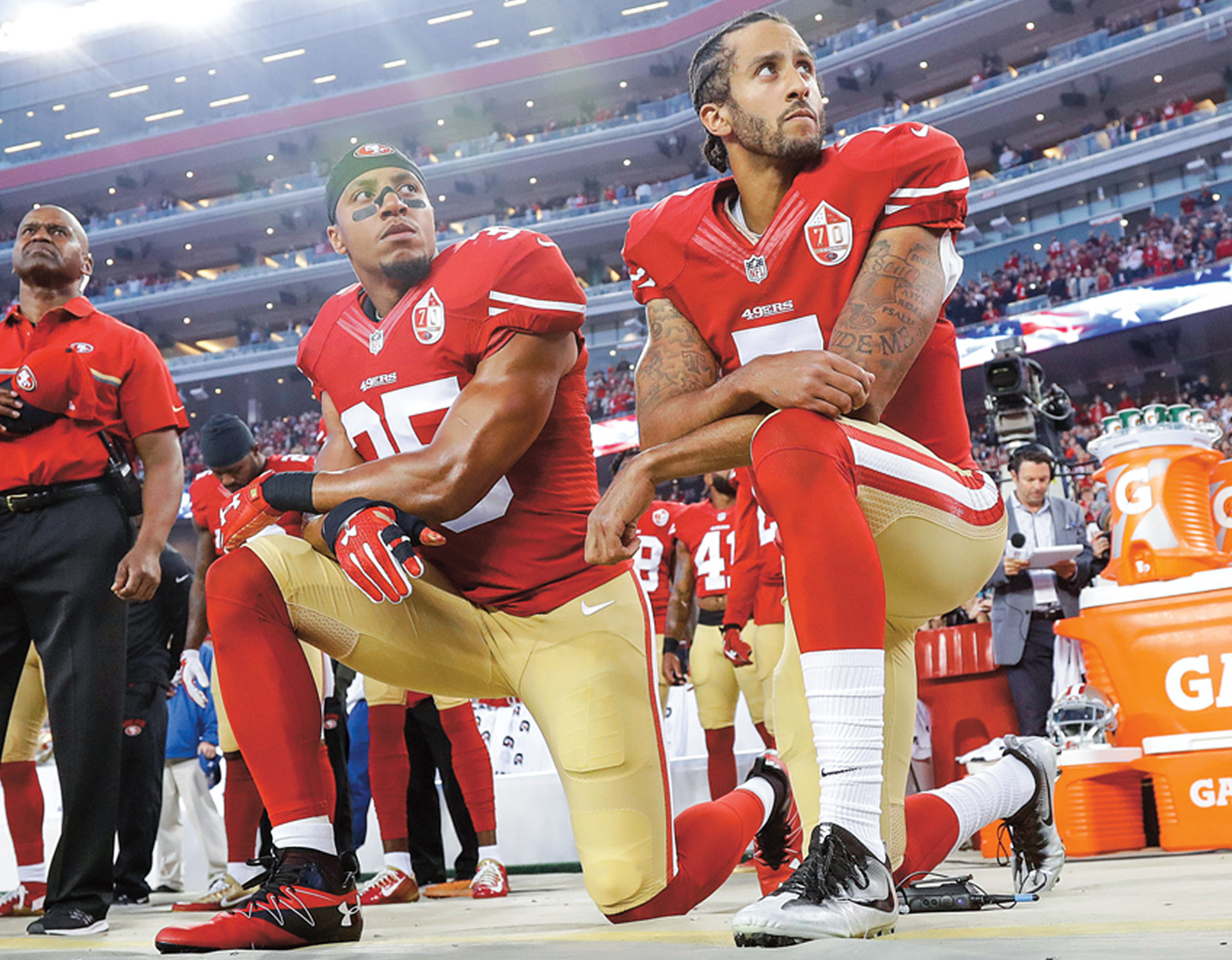When the national anthem played before an NFL preseason game in August, San Francisco 49ers quarterback Colin Kaepernick remained seated on the sidelines instead of standing like almost everyone else in the stadium.
Kaepernick expected some criticism for his protest—carried out, he said, to call attention to police brutality and racial injustice in the U.S.—but what followed was a firestorm. Many accused him of thumbing his nose at America by not joining in a patriotic ritual that’s long been a fixture at sporting events.
“There’s ways to make change w/o disrespecting & bringing shame to the very country & family who afforded you so many blessings,” read one of thousands of angry tweets. It came from Kaepernick’s biological mother, Heidi Russo, who gave him up for adoption as a child.
Others praised him for taking a principled stand, and even President Obama seemed to sympathize.
“I think he cares about some real, legitimate issues that have to be talked about,” Obama said during a press conference while visiting China.
The debate over Kaepernick’s actions raises two questions: How did the national anthem become so integral to organized sports, and why do Americans have such strong feelings about it?
“It’s part of our national religion to believe in the flag and Betsy Ross and the national anthem,” says Orin Starn, professor of cultural anthropology at Duke University in North Carolina. “When these national symbols are called into question, it makes people angry.”

